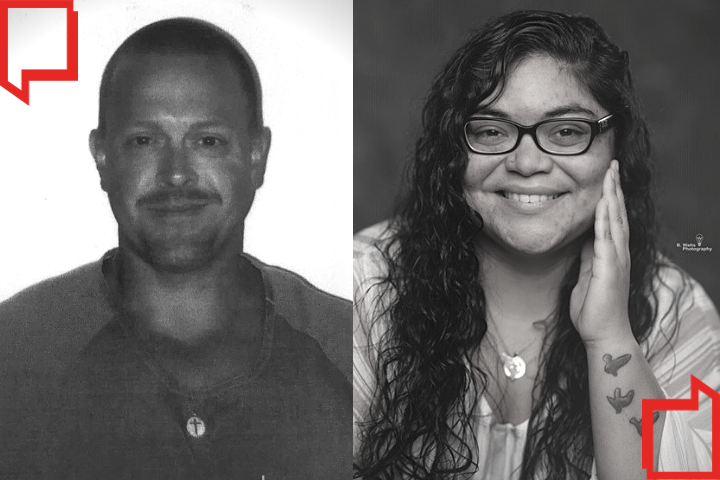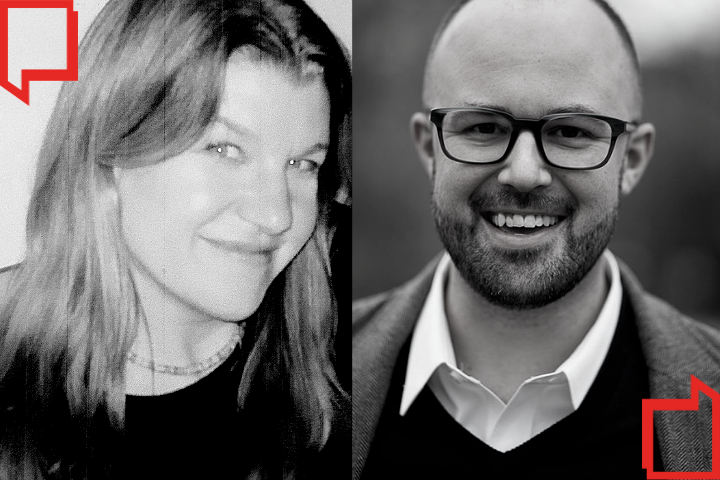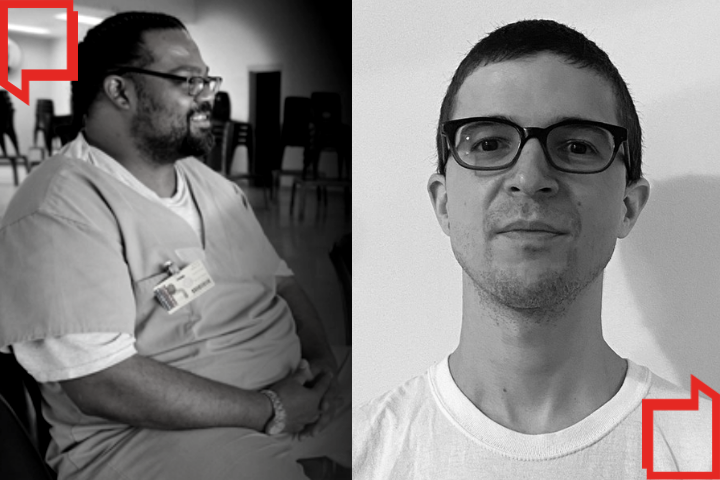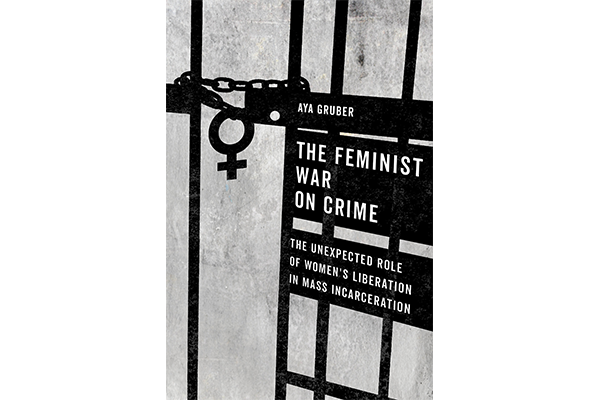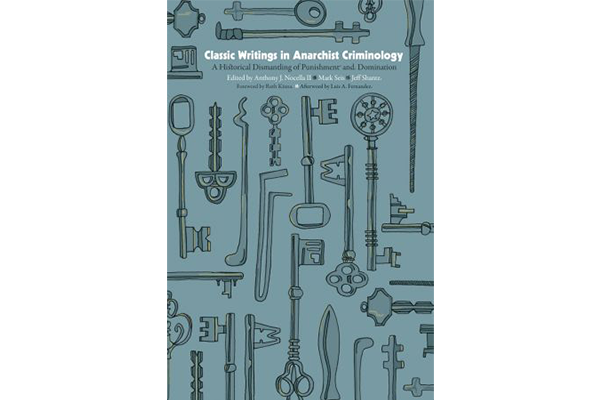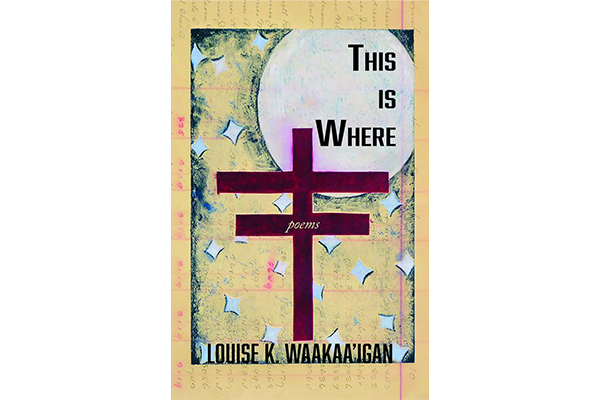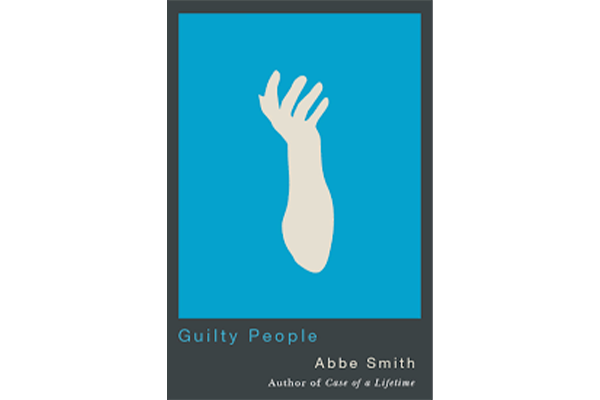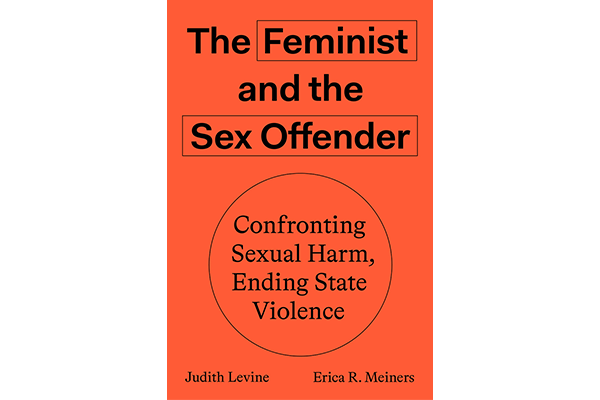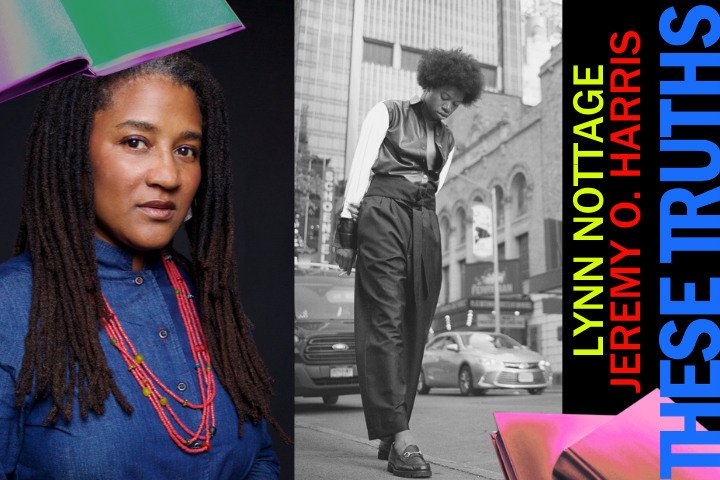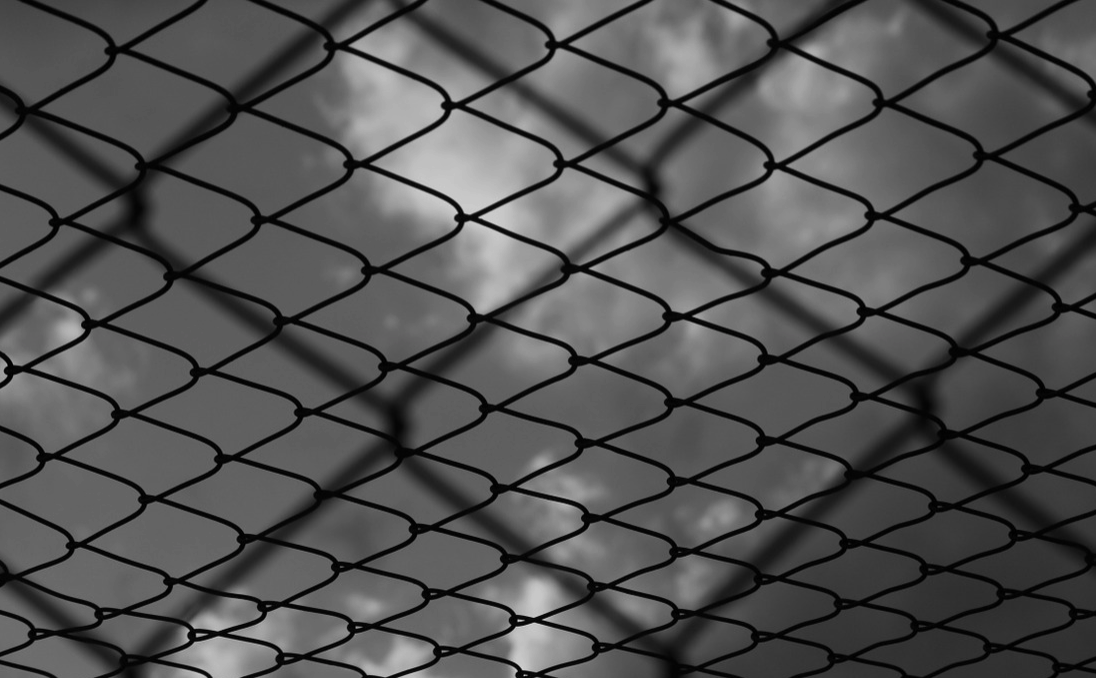Transcript
NICOLETTE NATALE: Hi Ebony! Thank you for joining us today. You’re very generous in sharing your story and how your dad’s incarceration for a mandatory minimum drug sentence has taken away time you could have spent with your father. And I know you’re still advocating for your father, who has spent over 30 years inside and is now 66, to be released, especially during the pandemic.
I can’t imagine how distressing the situation is for you and for the 2.7 million children—and that’s just those under the age of 18—who have a parent who is incarcerated. I was hoping you could speak to how your personal experience inspired you to found the nonprofit, We Got Us Now.
EBONY UNDERWOOD: Thank you so much, Nicolette. For the majority of my life, I did not talk about my dad being incarcerated. It was when the Obama administration decided that they wanted to reform the criminal justice system, that literally was the light bulb for me to say, “Oh my gosh, this is a moment where I can actually say something about my dad!” Because he had been fighting for so long, to try to get—well, I won’t say fighting; I’d like to use another word. I’ll say he had been struggling for so long to find relief because he had been incarcerated, at that point, it was like 25 years he had been incarcerated. And my family, my siblings—it’s four of us—we have been so burnt out by just trying to support him and getting him court cases and, you know, him being in the law library, and then laws coming down. And because of the lack of retroactivity in the law, which means that the new law would come out and wouldn’t apply to old cases; it only would apply to cases moving forward.
And so he’d be stuck in legal limbo. And the laws that would come out, they dismantled his sentencing. And so you would think that he would be able to come home. So many moments—it has been an emotional roller coaster for us.
So, I began to understand that the law is not sensical. The law is what the law says. It’s not rational. It’s not sensical. It’s what the law says. And that’s the way that it operates, which is really like a whole other language. And, I just knew that at the bottom line of it was that my father had been this really incredible dad. I just watched him—from childhood into adulthood now, I’ve watched him struggle with just trying to keep hope alive and trying to keep continuing to press on and seek relief. And when I heard the president, Obama, say at the time that he was wanting to reform the criminal justice system, I said, “Oh my God, this, this might be the moment. I think I have to say something.”
And so my father had a pro bono attorney. I reached out to them and was just telling them, like, “Listen, I want to say something; I want to create this film—but I need support. I don’t have any funding. What should I do?”
And in that week she said, “I’m on my way to the White House,” because she’s based in DC. She’s like, “I’m on my way to the White House because they have this initiative for children of incarcerated parents. And I want to go. I just wish you had something tangible that I can bring so that people could hear your story.”
And I said, “What? You’re going where? Okay, first of all, you’re going to the White House. And then secondly, you’re going, for what reason?”
She said, “Yeah, they have this initiative for children of incarcerated parents.”
And I said, “Oh, my goodness. I can’t believe that there’s a name for what I had been living.” Like I’m an informed person; I had never heard this term before in my entire life.
And that just kind of blew me away—number one, that this thing even existed, and there was a name for what I had been living. And then, the second part of it was like, “The President is actually — there’s an initiative for this? Oh, wow. Well, I really need to do what I’m telling you. What do you need me to do? What do you need?”
I’m a writer, so I wrote. I wrote this long four page letter to him, to President Obama, saying, “You have two daughters. My father has two daughters, me and my sister, and we have two brothers.”
And I was just like, “Oh, he could relate. He could totally relate.”
That led to me building out this website called inprison.net, that led to me creating a change.org petition, which now has a hundred thousand signatures for my dad. And just really beginning to tell our story. And in the process, I was relentless. I just was adamant about telling my story.
I wrote a couple of op-eds. I wrote for VIBE magazine; I wrote for the Huffington Post; I wrote for Mic; I wrote for The Appeal. I just was writing because, number one, it was cathartic. And then, number two, I just was really trying to create as much awareness about my dad as possible.
And then secondly, you know, it had just been so long. It had been so, so long. And so, all that to say that, I soon thereafter became a Soros Justice Fellow, and as a Soros Justice Fellow, I was hosted by the Osborne Association in New York for my fellowship. There, I began to learn about all the data and research around what had been said about children of incarcerated parents.
The Osborne Association is a state-based organization and my dad is in federal prison. So I started to realize there was a segment of the population that I felt was missing out. Osborne was great about creating awareness, but the levels of awareness—I felt like people just wouldn’t understand, it’s not a monolithic issue. This is really different at different levels.
And so, learning about this and being able to, through my fellowship, travel across the country and meet and speak publicly at a ton of different spaces, allowed me to be in Google and then to maybe be at a high school or maybe to be at a prison. And meeting young people that have had parents that are incarcerated at all these levels.
So it just made me say, “There’s a real need for this.” You know, there’s work that’s being done, but it felt very fragmented. So I just wanted to be able to create a space for children and young adults. Because there is no magic button at 18, where all of a sudden, I’m cured; I’m no longer traumatized by this experience.
As a matter of fact, as you become older and become an adult, you start to realize how much this experience has impacted your life. Regardless of whether your parent is home or not. Like you start to realize the effects of having had a parent incarcerated and how much of it really impacts your life.
And so that’s why I decided to start We Got Us Now because I just wanted to, in a really strength-focused way, advocate for supporting children and young adults who have been impacted by this thing called mass incarceration in our country.
NICOLETTE: Yeah, thank you so much for your answer. And I think working from your personal experience to create this organization is so powerful and really incredible.
So we know, pre-pandemic, it was already hard to be in contact with parents who are incarcerated, due to factors such as being in a prison far from where the family resides, or the exorbitant costs of telephone calls, email, or video conferencing. Can you speak to how the pandemic has made it additionally challenging to stay in touch with loved ones inside, and how We Got Us Now is advocating for easier pathways for communication?
UNDERWOOD: The pathways for communications have really been challenging with the pandemic—first of all, because of the fact that phone calls were scarce. I’ll talk to you about my specific situation: I talked to my dad almost every day. And so, when the pandemic hit, I hadn’t spoken to him for at least a week, two weeks. Maybe it was two weeks. Yeah. I think it was two weeks. We didn’t talk, because they just shut down everything. So he didn’t have access to phone calls or anything.
And what that has meant for me over the course of these three decades—anytime he’s locked down to that degree, and I don’t speak to him, that means that he has been transferred to another facility, because that’s usually how it works. When you don’t hear from him, it usually means that they have upped and transferred him.
And there’s no pre-warning. It’s just, he’s gone and he’s in some new facility. And so that’s what I was thinking. I’m like, “Oh, no, please, I hope he’s in the Northeast; I would hope that they didn’t move him anywhere.”
Like, I didn’t know what was happening. And so of course this is traumatizing. It’s just like, “Oh my God.” No emails, because I come to find out he was locked down; they had been locked down for 23 hours of the day and only out for an hour, every other day, to shower, to go to the commissary, and to eventually make a phone call, when we spoke to him.
Of course he can’t mail us any letters, cause he’s locked down. And that’s at the federal level, which was very challenged. At the state level, very similarly, people were not able to visit; people were not notified.
That’s another thing—there were no notifications about where our parents were, how were they doing. There was just nothing in place. And so We Got Us Now, we knew immediately. Once this thing became very serious, we just kind of decided that we were going to come together.
I say, “We,” because We Got Us Now now launched an actionist initiative. There’s 10 actionists from all across the country. They’re directly-impacted daughters and sons who are advocates for criminal justice reform. Basically, our actionist community came together, taking cues from their respective cities and States and their communities within their respective cities and States and the people that they’re in contact with that are also directly impacted.
We decided to come up with an open letter and we wrote four demands around the fact that we knew that there would be no such thing as social distancing. We talked about not knowing that there would be the notification system—not being aware what was happening in our spaces. We talked about the exorbitant costs of keeping connected at the federal level.
Let me just explain it to you, how this works. At the federal level, my father has a phone list. So he gets a list of about 20 people that he can actually call. You have to have their address; how are you related; how do you know this person; if you aren’t related—if their friend—how long have you known them?
And then, you know, of course this has to be vetted. And then that list can exist. But he is allotted 300 minutes per month. And every phone call is 15 minutes, maximum 15 minutes. So, again, he has four kids and three grandchildren.
NICOLETTE: Sorry, does he get 15 minutes to talk to each one of you? Like altogether?
UNDERWOOD: Yeah. Yeah. Altogether, respectively.
NATALE: Wow.
UNDERWOOD: Yeah. Yeah. It’s 300 minutes per month and he can’t call back to back. So if he does call for 15 minutes and he wants to call back, he has to wait 30 minutes to call back.
NATALE: Wow.
UNDERWOOD: And so most of the time I’m rushing, rushing, rushing off the phone with him because he’s just like, “I don’t have minutes. I don’t have a lot of minutes.”
So then, you know, I just want to say “Hi,” see if he’s okay, blah, blah, blah, blah, blah. Which is very frustrating for me, personally. This is very frustrating because just the loss of time that I have experienced in this situation is just—to me, it’s devastating, actually.
As I get older, I just realize the quality time that I just missed with my dad. And it just becomes really bothersome. Dealing with that—it’s a lot to really think about how much time has actually been missed between us.
That’s how it is at the federal level. At the state level and at jails, phone calls have to be paid for. The state level, I believe, is very similar to the federal level, where you have commissary and then you use the phone. When you do make phone calls, I think you can make them collect, depending upon the state. Or it is very similar to the federal system, where you are allotted a certain number of minutes per month, or granted.
But at jails, and at the state level—because there’s these telecommunication companies called Securus and Global Tech—these companies make billions of dollars annually, billions of dollars annually, just off of families. I feel like it’s like the commoditization of our parents, because in order for us to stay connected to our parents, we have to pay. Like they have to pay or we have to pay.
And usually it does come out of our pockets. Especially if you’re a young adult and you have a parent that’s been incarcerated, it’s usually coming out of your pocket. So, it’s a very frustrating situation. Very heartbreaking situation. For children of incarcerated parents, the communication with COVID, it just made it really, really, really challenging because money is not the same, you know; nobody’s working and now it becomes more of a challenge to potentially just stay connected to your parents and afford to stay connected, because if you don’t have the money, how can you afford to stay connected?
And remember, we’re already a very marginalized population. And if a parent is taken out of the home, usually it’s the parent that had the income, that was taken out of the home, right? Or was supporting the breadwinner of the family, to some degree. And so, a lot of times—more than often—we’re left in these really desolate situations. The economic instability that’s created because of incarceration, this pandemic adds another layer to that because of the fact that it’s just been really difficult for us to stay connected.
And so, what We Got Us Now did is we put together a petition—it’s a change.org for / protect our parents’ petition. And in that petition, there’s four demands. The first demand is to protect our parents behind bars—granting clemency for our elderly incarcerated parents and our sickly, because we know with the COVID-19 pandemic, those are the people that are most vulnerable.
And then our second demand was what I was just talking about, the free communications. Because what we learned during the pandemic was that these companies, these telecommunication companies—from AT&T to Verizon, to Comcast and T-Mobile—were all playing this really supportive role to people on the outside. People that were international that may have had family members that were overseas, or even here across the country. They were offering free data, offering free phone service. They were doing all this stuff to support families. And we were just like, “Well, hello, can we get that too?”
Because when you are, again, at the federal level, I explained to you what that’s like, right? It’s usually somebody on the outside—or if my father has some income coming in, then he’s able to put money on his phone. But it’s usually on us.
At the state level and at the jail level, it’s Securus. So people are actually calling so that their family members are putting money. With Securus you got to put a $25 down payment to actually even begin the process of utilizing Securus. So it’s $25 down and then every time you want to put money on the calls, it costs. It costs every single time. So we were like, “Hello, can we get something too?”
Like, it’s a pandemic, can we get some kind of support around being able to stay connected to our family members? We can’t visit them; we can’t see them. Can we get free phone calls?
So that’s when we put forth free communication. Because some people have iPads and other such things in state facilities—and even some federal facilities. And so we wanted to ensure that our family members, at the very least, being able to be allotted free phone calls.
For us, communication has been very challenging, I would say. But now, since the pandemic, the federal system has implemented free phone calls inside federal facilities. The interesting part of that was that they were locked down for most of the summer. They would get out every other day and only get access to the phone on certain days. So even though my father was now able to make free phone calls, he didn’t have really the time to make a lot of phone calls. So it’s like a Catch 22. It’s like, “Oh, okay, great. We’ll give you free phone calls.” But now he doesn’t even have the time to really make these phone calls.
They also added minutes, so he has 500 free minutes. Or he had 500 free minutes. I don’t know if it’s still in place at this moment, actually. It’s October now. So I don’t know if it’s still in place, but last month it was. Hopefully it still is—he hasn’t asked me to put any money on his phone, so maybe it is. Yeah, I think it actually is still in effect at the federal level.
But I know that at the state level, it’s not. A lot of people have no idea about whether they can still visit. Prisons were opening up; now they shut back down. So some children with back-to-school coming into play, they didn’t even get to see their parents.
It’s just been a lot. It’s just been a lot. I hope I answered your question.
NATALE: You did. Something I was wondering was when you were talking about your dad getting transferred, how are you actually able to contact your dad, if you want to make a phone call and he gets transferred and you don’t know?
UNDERWOOD: Okay, so let me explain to you. I can’t call him ever. I’ve never been able to call him. When he is transferred, this is usually how it goes: you call the prison, where he is or where he was, and find out. After a couple of days—this is what we’ve learned. Like, we have a process. If we don’t hear from him, like two, three, four days, we’ll call the prison to make sure that they’re locked down. We’ll call the prison to find out if there was a lockdown or call the prison to find out if he’s okay—did anything happen to him, or has he been moved? So those are the three questions.
It’s not easy to reach the prisons; a lot of times they don’t answer. Sometimes we’re waiting a couple of days until we get through, but in the past, when he has been moved, they’ll answer the phone and they’ll say, “Is this called in reference to an inmate?”
You say, “Yes.”
They’ll ask for the inmate’s name. You give them the incarcerated individual’s name and they’ll go back and find out what’s going on and who we are, of course; they have to find out who I am. And so, you know, I’ll say, “This is his daughter. I’m calling to find out, is he okay? Is he still there?”
“He’s still here. We’re locked down.”
“Oh, okay. That’s good. Is he okay?”
“He’s okay.”
And then, you know, just as long as I know he’s there. But there’s been moments where he’s actually been moved; he’s been transferred. Or they say they can’t tell me anything.
And then I’m like, “Oh, no”—so I don’t know if he’s sick, I don’t know if he’s okay, and I don’t know if he’s been moved. So I just kind of got to wait to hear from him. But just the lack of information—like there is no notification system. That’s one of our four demands too: can we have some sort of notification, because people were thinking, during the pandemic, that they could still go visit.
And just to give you some context: when you visit, these places are hours away. Unless your parent is in a local jail, this is hours away. Here in New York, the closest facility for some of these places—some are very close; there’s a facility actually in Brooklyn—but then there’s facilities all the way by Canada. My father was in a federal facility that, although it was in New York, was six hours away from the city. And that’s one way. So that’s a 12-hour day, just driving. So we would have to leave at like two, three AM in the morning just to get a full visit, a full day with him.
We would have to leave so early in the morning just to be able to have the opportunity to spend some quality time with him. It’s so challenging. And people were doing it—and then getting to the prison to find out that they were closed. They were locked down. And not having any idea.
It’s great to be able to speak on these topics, because you just asked a really important question: “Are you able to call him?” No, never been able to call him. Never, no. Just never know. You just never know.
There’s a lot of nuances in this experience that I just feel like the average person has no idea—from the monetization of every phone call, to even coming to visit and what that experience is like, to have to eat food out of a vending machine.
The food is—my father says it’s the best food in there, actually. The vending machine! Which, to us, to me and you, would be like, “What?” We probably wouldn’t even eat that, especially with how good we eat out here. I don’t know if you eat healthy, but I’m a healthy eater.
That food is junk. It’s like pizza and fried wings, and then it’s packaged, so it’s gross. Or a bunch of junk food. And I can’t eat that.
It’s just a lot. It’s just a lot of different types of things that we experience just to stay connected to our parents. And I feel like the system continuously profits off our pain through all sorts of ways. I mean, even an email costs. You know, like even for my dad to email me, that costs. So that goes against how much money he has in his account and it’s usually $300, because you can only send $300 at a time.
Even through Western union, it’s $9.99 to send it, but it’s $300 a pop. So it’s just so much money. It’s so much money.
NATALE: This kind of leads me to the question of the article that you wrote in Mic, which was, “I’ve been socially distancing from my father for 31 years.” Because in it, you highlighted the words of Tiffany Brown, a We Got Us Now activist—
UNDERWOOD: Actionist.
NATALE: Oh! Actionist—I’m sorry. And she asked, “What if I was just laid off from my job and couldn’t put money on my parent’s commissary account? How would they get access to soap and basic hygiene supplies during the global pandemic?” And she was really highlighting what you’re talking about in terms of everything getting commoditized, in terms of trying to stay connected and how family members on the outside often have to support those on the inside.
And the added stress of doing the financial support during an economic recession due to the pandemic. So I was wondering how We Got Us Now is addressing these financial concerns of children trying to protect and care for their loved ones inside, during a health and financial crisis. And also if you wouldn’t mind explaining what an “actionist” is.we got us now
UNDERWOOD: Yeah. Thank you for that question. I mean, having the ability to be able to publish that article, and to share Tiffany’s words, right? To be able to share Tiffany—Tiffany is based in Michigan. She runs an organization called Developing Despite Distance for children of incarcerated—for boys, particularly, with incarcerated parents. And her mom was incarcerated when she was younger. And so she absolutely knows what this is like. And so, she is often met with these questions and that was something that came up during the pandemic. Like, what do you do?
She has some young people that she works with and they were exactly in this situation. We’re all navigating this really challenging situation. We all are on a regular basis. But, like you said, I titled the article, “I’ve been social distancing with my dad for the last 31 years,” because this is exactly what it feels like.
If the world wanted to know what it feels like to be a child of an incarcerated parent, this experience of social distancing is exactly what it feels like. And we haven’t even done it a year, like a full year. It’s a little over six months—seven months, right. Seven, eight months now. It’s not even a full year that we’ve experienced this and we are stir-crazy.
We’re like, “Oh my God, what are we going to do? When is this going to be over? How are we handling this?” And we’re trying to cope, but it’s depressing. Just think about all the emotions that come with having to have been in this experience. We’re isolated; we’re not able to embrace our family members in the same way that we wanted to.
This is exactly what it feels like to be a child with an incarcerated parent.
And so I feel like Tiffany added a whole other layer of the financial displacement this puts on daughters and sons that have been impacted by parental incarceration, especially if you’re elder or young adults that are caring for parents that have been incarcerated, or that are incarcerated.
The financial stress that has now been put on us already, given the pandemic—now, add the layer of having a parent that’s incarcerated. The emotional stress of not knowing if they’re okay, day to day, and the scariness about COVID looming inside. The physical stress of not being able to give them a kiss or a hug because you just miss them and you want to see them.
I haven’t seen my father for—gosh, I haven’t seen him since February. That was the last time I saw him. And it’s October. It’s about to be November. I have not seen him. I miss him a lot. I visit him regularly—at least once a month. So the emotional and then the physical, and now the economic stress of not being able to, you know.
For me, fortunately, I’m able to send him anything that he needs. But for those of us who have to make a choice: Do I send my parent this, this week, or do I go and allot that money from our groceries? How are we sparsing out this money; the stimulus check hasn’t come back in.
It is very much so both a health and financial crisis for us. On so many different levels. And some of the ways in which we try to address these financial concerns of children of incarcerated parents are doing things like this. Having this conversation with you today is an opportunity for me to share, you know, for the state of Michigan. So that they know that this is what’s happening, for some young people that are in Michigan—or, you know, wherever you are.
Think about, is criminal justice reform on your ballot? Are your policy makers ensuring that they’re protecting these families that are being harmed unjustly? Last night they talked about that, even in a debate, some of these kids that are displaced because of separation at the borders.
We could wholeheartedly agree that children of incarcerated parents have been going on for decades. Like I said, a whole generation. And a generation is equivalent to 30 years. I’ve been dealing with this for the last 32 years, a whole generation. You know what I’m saying? We don’t want another generation of mass incarceration. That’s why it’s so important to share our stories and be able to connect with people so that they understand a glimpse of what we are experiencing on a day to day basis.
And, mind you, I was a kid when this happened to me. I was a kid when I was forced into social distancing. I’ve been dealing with this for years, this thing of social distancing. I’ve been dealing with this for years. So, I’ve just had to learn how to cope, and grin and bear it.
We Got Us Now came about because I realized that people actually do care. For a lot of my life, I felt like people did not care. I kind of just held it close to my chest and really did not realize how harmed I was in it.
To answer your second question: “What is an actionist?” I always knew that I did not want to do this work alone. I always knew that I wanted to build community. I was mindful of really wanting to build out a community, because I felt that—like when I was sharing with you—children of incarcerated parents, it’s not a monolithic issue. It works in a lot of different ways. And so I wanted to be able to ensure that children of incarcerated parents had the support, because that was the thing that I started to discover in all of my research, that people had no idea that this actually even existed, and that there was this invisible population of children, at all levels.
Again, most people kind of clump us all together. And it’s not that. I wanted people to understand that it was bigger than that. So, We Got Us Now is the first of its kind: it’s a national nonprofit, nonpartisan organization. It is built by, led by, and about children and young adults with incarcerated parents.
We have two really, really succinct missions. Our mission is simple. We really just want to do action and advocacy. And, beginning this organization, most of the work that we were doing is our advocacy work, which is creating content to tell our stories.
But beyond telling our stories, what I also wanted to do was—you know, we can tell our stories all day. There are definitely organizations that support young people telling their stories, and that’s great. But we wanted to go a step beyond that, because what I had discovered in all the research that I had done was that there were two distinct groups.
There were children that were very much wanting to tell their stories, but then there was also a group that was just like, “We support the work that you do, but we don’t really want to talk about this. This is not something I want to talk about.”
So for those that wanted to advocate and wanted to do more and tell their stories and even go beyond telling their stories, we decided that we wanted to create this actionist leadership program. And the actionist leadership program basically was a way for our community members who wanted to take action and help to support policies that were out there. There’s so many groups, right? Even the group that you come from—there’s so many groups that are doing incredible work around criminal justice reform.
And we know that storytelling is a powerful tool. Beyond storytelling, what we began to discover is that we need to share some of these intricate details about our experience that people may not be privy to. How can we help to actively support the reform work that’s being done, right? What we did was we identified young people from all across the country. And basically what we did is we developed them into leading subject matter experts.
So what we do is we develop and we train them with all sorts of information around the criminal legal system, because you could be impacted and have been dealing with this stuff, but have no idea about what’s happening on the policy side of things. Like, if you took some action and became an actionist, you may not have to deal with this.
We have four founding principles with We Got Us Now: to engage, educate, elevate, and empower our young people. And so we just felt like, listen—for those of us that want to actually do those things, we are going to help to support you in doing that by equipping you with the tools and the information so that you can become this subject matter expert, because you already come to the table as an expert through this experience. But now we’re going to make you a subject matter expert that is equipped to speak about these issues and understand how you can support our very specific policy priorities, which are: To keep families connected; to create fair sentencing, because we definitely over-incarcerate in the United States; and then, ultimately, to end mass incarceration.
And that starts with the data. We know that we are the great mass incarcerator of the world, the United States is. And that 2.3 million people are incarcerated. What we found out is that 50 percent of that population are parents. And so we were just like, “Listen, is that really true?”
Even in this conversation, 2.7 million children under the age of 18 at any given point in time are experiencing that. We did more research and found that that is greater than the states of Maine and New Hampshire combined. 2.7 million people.
So 2.7 million children: That’s bigger than the states of Maine and New Hampshire together. That blew me away. But the epidemic is that over 10 million children over this generation of mass incarceration have been impacted by parental incarceration. And so, I always knew I could never do this alone; I need to find these young people. We’ve only been in existence since 2017, but it literally took me this time to really identify. Because we’re a historically invisible population. Children of incarcerated parents don’t talk; they don’t share; they don’t share their stories. Only if they feel like they’re in a safe space.
So we felt like we have to create these safe spaces, in order for them to know that they’re in community; that they’re not alone; that you can share; that, you know, we are here for you and we are advocating for you. And even if you don’t want to talk, we respect that as well. There are those of us that do want to talk. So we’re going to advocate and make sure that we’re supporting your goals and your needs.
Again, we’re a national organization. So I said, “How do I do that best? Let me find the young people in these cities and states that are doing the work and amplify them. And then empower them and equip them with the tools to do it in their respective cities and states.”
And so that’s what an actionist is. We take action beyond activism. We took it a step further and decided that we wanted to be able to take action.
NATALE: That’s awesome. I love that so much. Before our interview ends, is there anything else that you’d like to add?
UNDERWOOD: My call to action today would be, if everybody could please sign our petition. We really took a lot of time in coming up with this petition and it outlines our four demands to protect our parents behind bars since COVID has hit. The petition is change.org forward / protect our parents.
The other ask that I would do is to please join our movement. You can learn more about We Got Us Now by going to wegotusnow.org, and you can always donate. You can go to our page to donate, or you can buy a hoodie. We have some really cool hoodies and t-shirts; we have a cool logo and a brand. All those proceeds go directly to supporting the work of We Got Us Now.
I just want to say thank you so much for this interview. I’m excited to be on Temperature Check, so thank you.
NATALE: Yeah, no, it was great interviewing, and thank you so much for taking the time to talk to me today.
UNDERWOOD: Absolutely, absolutely. No problem.

